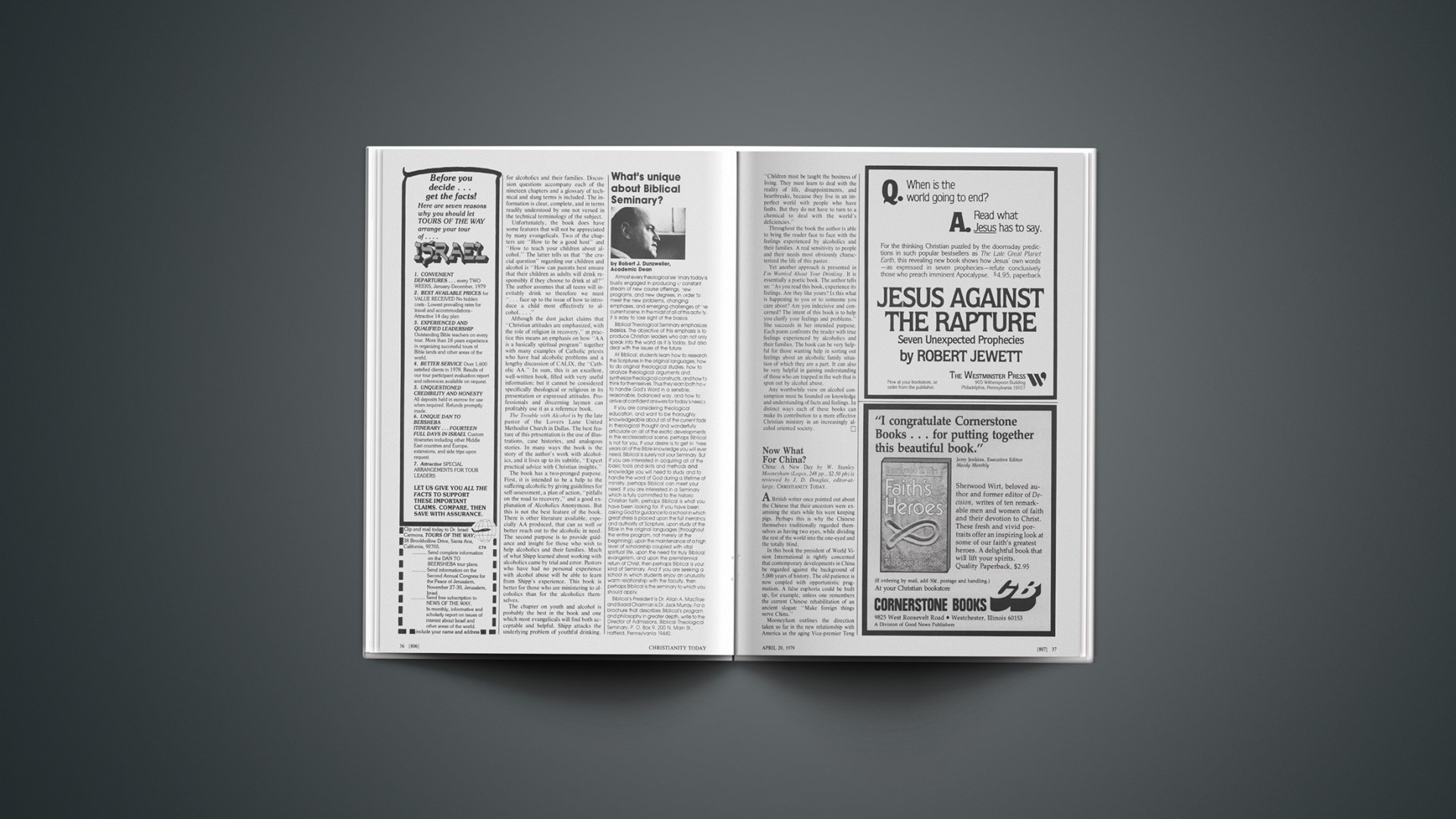China: A New Day by W. Stanley Mooneyham (Logos, 248 pp., $2.50 pb) is reviewed by J. D. Douglas, editor-at-large, CHRISTIANITY TODAY.
A British writer once pointed out about the Chinese that their ancestors were examining the stars while his were keeping pigs. Perhaps this is why the Chinese themselves traditionally regarded themselves as having two eyes, while dividing the rest of the world into the one-eyed and the totally blind.
In this book the president of World Vision International is rightly concerned that contemporary developments in China be regarded against the background of 5,000 years of history. The old patience is now coupled with opportunistic pragmatism. A false euphoria could be built up, for example, unless one remembers the current Chinese rehabilitation of an ancient slogan: “Make foreign things serve China.”
Mooneyham outlines the direction taken so far in the new relationship with America as the aging Vice-premier Teng accelerates as much as he can in pursuit of the prosperity dreamt of by his mentor Chou En-lai. All this in a land with almost five times the population of the United States but with only one-fifth the gross national product, and a per capita income of less than $400 a year.
Mooneyham is convinced that China cannot be understood without noting the “solidly entrenched sense of place [that] has given the Chinese a deep-seated personal identity”—of being each a member of the “Middle Kingdom,” and not of some vague region dismissed airily by us Westerners as “the Far East.” Not only did the Chinese develop a certain xenophobia: such an attitude was totally justified because of the frightful treatment suffered at the hands of the British and other Europeans (who then were the barbarians?). It was easier, however, to exorcise the foreign devils than to cope with the centuries-old tradition of mother China.
All this is dealt with before Mooneyham returns to pick up the story of the farmer’s son born in Hunan province in 1893. He harbors no illusions about Mao who (the prologue reminds us) had been responsible for more deaths than anyone who ever lived, but neither does he neglect to catalogue Mao’s solid achievements.
Stanley Mooneyham over the past fifteen years has lived and travelled extensively in the Orient. He has an observant eye, a judicious mind, a compassionate heart, and a training in journalism. This is a lively and moving book. Whether he is dealing with American visitors to China (“China needs dollars for modernization”), Chinese students in America (“the shock of Western culture”), the communist attack on the family (“creating a generation gap”), or foreign investment in China (“giving overseas companies more freedom in China than in many noncommunist nations”), the author speaks out of careful research and personal experience. Referring to the closed door behind which the state assailed the church, he points out that God never left China, that “thirty years of Marx have not changed China at the core.”
With true journalistic objectivity he does not spare us an account of the serious weaknesses in past missionary efforts in China—indeed, he goes on to identify them. Neither, however, is he reluctant to obtrude a subjective note. “Is China,” he asks, “somehow, someway, sometime—in your future?”
Even then he is not finished with us. Right up to the last page he is a purveyor of discomforting thoughts. It will not be long, he reminds us, before Christians from the Chinese mainland will be coming to the West. And we may not like them, we in a church that is “rich, and increased with goods, and has need of nothing.” Altogether, this is $2.50-worth of strong medicine.










